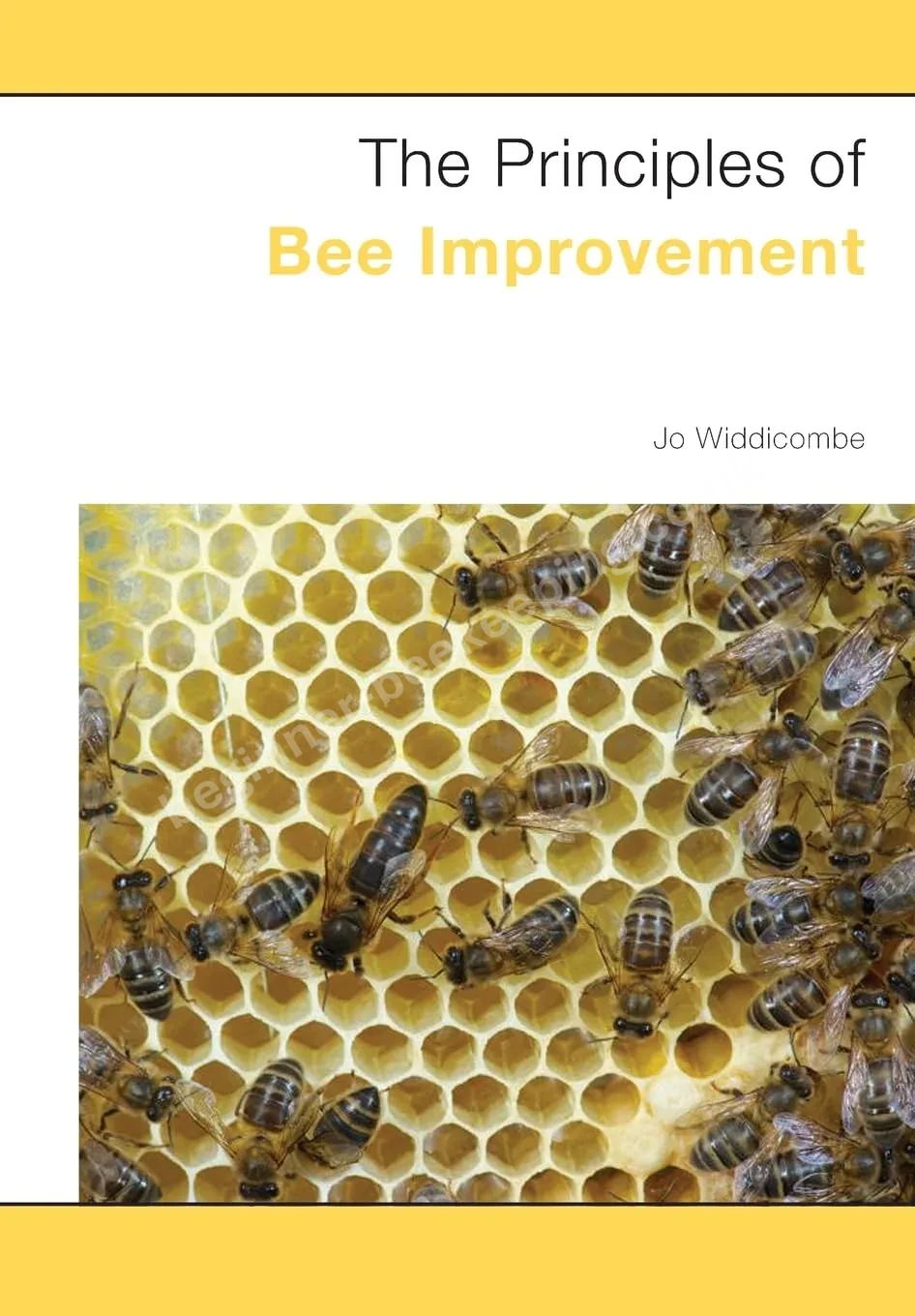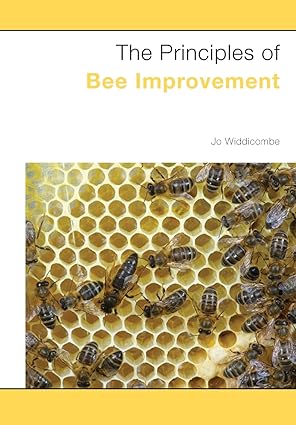If you’re looking to improve your beekeeping practices in a sustainable and scientifically sound way, there’s one book you need on your shelf: The Principles of Bee Improvement by Jo Widdicombe.
As one of the UK’s leading voices in bee breeding and conservation, Jo Widdicombe brings over 30 years of hands-on experience to his work, including serving as a Seasonal Bee Inspector and running over 100 colonies as a bee farmer in Cornwall. He is a long-standing committee member of BIBBA (Bee Improvement and Bee Breeders Association), the UK’s leading organization promoting the conservation and selective breeding of native honey bees.
This isn’t just a book – it’s a blueprint for resilient, productive, and gentle bees rooted in local adaptation.
The Heart of Widdicombe’s Approach: Local, Not Imported
At the core of Jo’s philosophy is a powerful idea: don’t chase perfection by importing bees from elsewhere – improve what you already have.
Rather than relying on imported queens or exotic strains that often underperform in unfamiliar climates, Jo advocates for selecting and improving bees from your own local stock. This principle is particularly important given the increasing concern around:
- Outbreeding depression caused by crossbreeding incompatible strains
- Loss of local adaptation in bee populations
- Disease and pathogen transmission via imports
- The ongoing hybridization threat to the native European dark bee (Apis mellifera mellifera)
By working with your local bees, especially native or near-native AMM stock, you help preserve genetic integrity and build colonies that are naturally adapted to your local climate, forage, and disease pressures.
A Practical Guide for All Beekeepers
Whether you’re managing a few hives or dozens, The Principles of Bee Improvement offers a clear, accessible, and structured guide to sustainable bee breeding. Key topics include:
- How to assess colonies for improvement
- Methods for selecting the best queens and drones
- Natural vs. artificial selection
- Managing breeding within a closed or semi-closed population
- How to breed from gentle, hardy, and productive colonies
Jo dispels the myth that bee improvement requires large numbers or advanced genetics knowledge. Drawing on traditional principles – many aligned with the wisdom of early farmers and modern conservationists – he shows how small-scale breeders can make significant progress with patience, observation, and consistency.
Why It Matters: The Bigger Picture
Modern beekeeping has been shaped for decades by commercial pressures, queen imports, and hybridization. While this may offer short-term gains, it often undermines long-term resilience, especially in regions like the British Isles where the native black bee is still present in fragmented populations.
Jo Widdicombe’s work aligns closely with leading scientific research and initiatives like the B4 Project and BIBBA, both of which emphasize the critical importance of:
- Protecting native Apis mellifera mellifera
- Avoiding the genetic dilution caused by non-native imports
- Rebuilding robust, regionally adapted bee populations
- Encouraging natural selection and minimal intervention practices
If you care about the future of beekeeping – not just as a craft but as an essential part of biodiversity and food security – The Principles of Bee Improvement is a must-read.
Where to Get the Book
You can order The Principles of Bee Improvement by Jo Widdicombe directly through Amazon, or check your local beekeeping association for availability. Supporting native bee conservation starts with education – and this book is one of the best places to begin.
Final Thoughts
Jo Widdicombe’s message is simple but revolutionary: Don’t import perfection – improve what you have.
In a time of climate instability, emerging pests like Tropilaelaps, and increasing pressure on pollinators, Jo’s work offers not only a sustainable path forward – but a deeply rewarding one for any beekeeper ready to take the long view.

